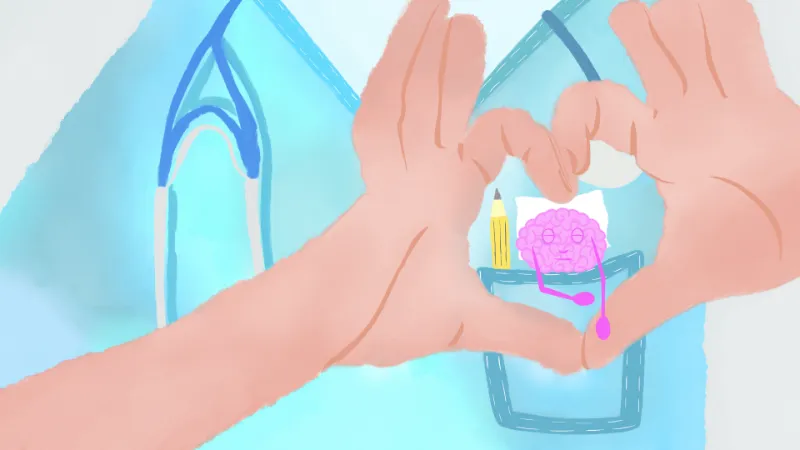It's lots of things really
- DOCTORS & PATIENTS - IT'S LOTS OF THINGS, REALLY!
In this consultation, we encounter Mrs Milton, a courageous individual who, despite being caught in the poverty trap, is bravely seeking help for her depression, anxiety, and sleep deprivation. She is understandably worried about her future, but her decision to contact the doctor for a chat is a testament to her resilience. She has chosen to talk to the doctor because of his past assistance to her children.
Mrs Milton’s situation is complex and challenging. She states, “Everything is sort of getting on top of me, really.” She’s unable to sleep, one of the kids is unwell, the flat is damp, and she receives an enormous electricity bill. Alan, her husband, told her to ignore it and was not concerned about the situation. At the same time, Mrs Milton is worried about their financial problems.
In addition, Mrs Milton has expressed her concerns about the young social care workers assigned to her. She believes they might not fully understand the complexity of her emotions. Dealing with multiple people involved in her care, including social care workers, housing officers, and her doctor, has left her feeling overwhelmed. Mrs. Milton feels that her issues remain unresolved. She has communicated her concerns to the care workers, who have documented them. Moreover, she spent most of her afternoon at the housing offices but needed to be informed about any progress or the next steps regarding her situation. The lack of clear communication has only increased her distress and emphasized the urgency of addressing the problem.
So how are the kids?

At this point, the doctor asked a few times, “What would you like me to do?” to work out how he could help with the situation. Mrs Milton ignores that and continues talking about how her mum has moved away to Walthamstow and used to be around to look after the kids sometimes. However, since her mum moved away, Mrs Milton has found the kids unruly and getting on top of her. With this in mind, Mrs. Milton unexpectedly drops the line, “I’m going to hit one of them soon!” to the doctor’s shock. The doctor maintained his professional demeanour as he asked, “Did you hit one of them?” to gauge the severity of the situation rather than expressing personal shock.
"I'm not going mad, I'm perfectly alright."
Simultaneously, she then goes on to admit that she ended up hitting her eldest, Michael, because he wouldn’t stop screaming, and she felt out of control of the situation. She immediately regretted it and felt guilty afterwards. She doesn’t know what to do and is looking to her doctor for help as things can’t keep on going the way they are. Maintaining his professional approach, the doctor listens carefully and offers guidance.
In light of Mrs Milton’s health concerns, she tells the doctor that the prescribed medication was not providing sufficient relief. On the other hand, her husband, Allen, fails to acknowledge the severity of the situation and advises her to “Pull myself together” instead of addressing the issues she discussed with the doctor. Mrs Milton remarked that during her doctor visits, she is consistently referred to a psychiatrist, stating, “I’m not going mad; I’m perfectly alright,” emphasising that while she acknowledges the challenges, she feels unsupported. She continues by expressing that everything is happening simultaneously, and no assistance is available.
Nothing ever get's done about it.
The doctor, understanding the complexity of Mrs. Milton’s situation, clarified his role in the consultation. He referred her to the psychiatrist because they would be more skilled and have more time to discuss her problems than he currently could. He highlighted that she can discuss many issues with the psychiatrist, including her relationship with her husband Allen, troubles at home, and housing problems. The doctor emphasised that, ultimately, Mrs. Milton was the only one who could help herself.
Will they get the housing?
He then explains that her housing problem is a waiting game due to long waiting lists. The houses simply don’t exist. More people need housing, but fewer houses are being built, or they are not being built fast enough. As a result, homes have become hard to come by. The doctor mentioned that he could only provide limited assistance beyond making medical recommendations, and he had already done so. He clarified that he primarily offers medical advice and referrals and is not directly involved in resolving social or housing issues.

You need to help yourself.
Moreover, the doctor recommends that he consult his health visitor to determine if other options are available to address her electric bill situation. He then stresses the importance of her taking the initiative to help herself. After this, Mrs. Milton comments on how the doctor had been helpful with the kids when they were younger, and she hoped to receive his support.
Mrs. Milton then tells the doctor that he has it easy and is lucky because he lives in a posh house. Shortly after, she mentions that she can’t take it anymore because she keeps seeing water running down the walls. Mrs Milton threatens again that she’s not going mad and threatens to hit one of her boys if nothing is sorted. She briefly realises that was a bit much but emphasises that he’s the only person she can talk to.
It wouldn't do you any good!
The doctor suggests connecting the patient with other agencies to help her with the issues and ensure they are resolved. He then reiterates that this is all he can do. As Mrs Milton is showing signs of struggling to cope with her children, the doctor asks what she wants him to do if she cannot care for them. Suddenly, Mrs Milton abruptly interrupts, saying she knows other moms who have hit their children, trying to justify it, but not entirely.
In contrast, the doctor noted that taking them away won’t do anyone any good. The patient told him that their husband wouldn’t miss them. Despite this, Mrs. Milton is fond of them, but they are a bit too difficult to handle now as they are young. She expressed her worries about the environment they are growing up in and the kind of people they will become when her children are older, and she will no longer be able to control them. She’s concerned that people are already complaining about them, and things might get out of her control later.
Can't talk to anyone about it.
Above all, Mrs Milton has no one she can talk to. She can’t speak to Allen as he’s never around. There was also nothing her mum could do to help, precisely what the council and other authorities kept telling her. She then says that the council constantly reassures her that they will help but don’t do anything. In addition, the doctor chimes in, saying they will and are helping but can only go at the pace they can, which unfortunately is slower than they would like due to the limited housing. He also says they still need the housing but will get it eventually.
In fact, the doctor goes on to say that many of his patients at the surgery are having these problems, and she will get the help she needs. He then talks about one particular girl he helped recently at the surgery by getting the local council involved, and she is now happy in her new home.

Will things improve?
The doctor is hopeful that things will improve for Mrs Milton. He concluded by stating that he would consult with his health visitor regarding Mrs Milton’s concerns about her children and arrange for someone more experienced to visit her. Additionally, he would address her housing issues, such as electric bills and dampness, and connect her with the appropriate resources. He emphasised that, as a doctor, this is the extent of what he can honestly do.
Regardless of this, Mrs Milton asks if she can revisit him. He says, “Yes, of course.” He then gently nudges her on to leave, as he mentions he has other patients who need his help now and need to be seen. However, he assures her that things will get better. He finally promises to do his best and draws the consultation to a close. Mrs Milton is grateful at the end of the conversation.
To summarise:
In conclusion, we see a patient caught up in the poverty trap, depressed, anxious, lacking sleep, confused and worried about her future. She explains to her Doctor the difficulties she is having with her husband, the damp housing and the unruly children. Previously, she had been sent to see the Psychiatrist. She reportedly explained to them that she is “not going mad”. She also saw the social services but needed more confidence in their experience and powers. During the video, the Doctor gently listens to her outpourings of sorrow, then gently challenges her by asking her about her expectations of the system.
The Doctor outlines the problems and suggests various solutions for her to try. Specifically, he offers the possibility of financial help via his health advisor, who he believes is experienced and mature enough to help in this particular case. The patient initially rejects this solution and makes a hasty comment that she “feels that she might hit the children if something isn’t done.” The Doctor immediately challenges this. They reach a tacit agreement that this is an implausible thing to happen.
Furthermore, the Doctor underlines this by challenging the patient’s desire to have her children removed. The general practitioner draws from his own experience, expressing in words that this is quite a common difficulty in the area and that he would see what he could do: use the agency of his health visitor. He finally extracts a promise he will do his best and draws the consultation to a close.
Is it appropriate to schedule a doctor's appointment solely for discussing family matters?
For the patient;
It is generally not considered appropriate to consume a doctor’s time with non-medical familial matters, such as family disputes, financial issues, or personal relationship problems. Doing so can distract the doctor from addressing medical issues and providing essential care to patients.
It’s important to remember that a doctor’s time and expertise are valuable. Engaging them in non-medical familial matters can distract them from addressing medical issues and providing vital patient care. This could potentially compromise the quality of healthcare provided. Therefore, respecting a doctor’s time and expertise is crucial in focusing discussions on medical concerns during appointments.
For the Doctor;
Where do you draw the line? What do you think about the bio-psycho-social model and would you have this discussion and why?
Have housing and child services changed much since this time?
Not really.
Should doctors spend their time sorting out non-medical family issues?
It happens, but it can be an opportunity to access risk to vulnerable family members. Many doctors find this is a source of stress and burnout. Knowing when to refer on, and to whom, is really important.
